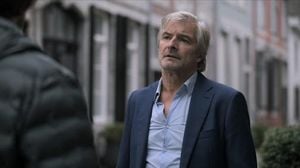NEW YORK - A Manhattan jury concluded its deliberations on Monday, December 9, 2024, finding Daniel Penny not guilty of criminally negligent homicide for the chokehold death of Jordan Neely on a New York City subway. This verdict marked the end of a high-profile trial steeped in controversy and public outcry, capturing the essence of societal tensions surrounding homelessness, mental health issues, and public safety.
Penny, 26, a former Marine and architecture student at the time of the incident, was accused of using excessive force when he restrained Neely, who had previously worked as a Michael Jackson impersonator, for nearly six minutes. During this time, witnesses reported Neely was acting erratically, allegedly shouting about hunger and expressing despair over his circumstances. Critics of Penny argued he held the chokehold for too long, even after Neely lost consciousness.
The jury's deliberation lasted over five days, which included reviewing key evidence, such as video footage of the incident. Initially facing two charges—second-degree manslaughter and criminally negligent homicide—prosecutors dropped the more severe manslaughter charge after jurors indicated they were deadlocked on it. The case pivoted to whether Penny’s actions constituted reckless behavior leading to Neely's death.
The trial saw testimonies from various witnesses, including the city’s medical examiner, Dr. Cynthia Harris, who testified Neely's cause of death was due to compression to his neck. Under intense scrutiny, Harris rejected suggestions from the defense alleging Neely's death arose from pre-existing health issues exacerbated by synthetic marijuana found in his system.
During deliberations, jurors presented questions indicating their struggle with definitions of recklessness and negligence, demonstrating their need to understand the legal concepts central to their decision-making. Their quest for clarity led to requests for readbacks of judge’s instructions and key pieces of video evidence, reflecting the serious consideration being afforded to the case.
The courtroom erupted when the jury announced the not guilty verdict. Emotions ran high as Neely's father, Andre Zachery, was ejected for expressing his frustration upon hearing the news. Outside the courthouse, demonstrators cried out for justice, highlighting the racial and societal inequalities stirred by the traumatic case.
Penny's defense maintained he acted out of fear for his safety and the safety of others. They argued Neely demonstrated violent and threatening behavior, affirming Penny's split-second decision to intervene. Witness testimonies varied, with some fearing for their safety and others stating Neely hadn't directly attacked anyone on the train.
Following the trial's conclusion, Mayor Eric Adams remarked on Neely’s death as indicative of the struggles faced by New Yorkers with mental health problems and homelessness. He emphasized the necessity for systemic reform within the city’s treatment of these issues, underscoring the tragic loss of life.
Meanwhile, reactions from state and national figures were mixed. Prominent Democratic voices, such as Congresswoman Alexandria Ocasio-Cortez, expressed outrage at the verdict, framing it as emblematic of systemic racism and failure to protect vulnerable community members. Conversely, some Republican leaders heralded Penny's actions as reasonable and justified, reflecting the acute polarization surrounding the event.
The aftermath of Neely's death and Penny's acquittal reignited fervent discussions about public safety, mental health awareness, and the treatment of homeless individuals within urban environments. Moving forward, advocates are continuing to analyze the repercussions of this case on public perception and policy, striving for greater accountability and compassion for marginalized communities.
Penny himself, who appeared relieved upon hearing the verdict, reflected on the emotional and legal toll of the trial. “I wasn’t trying to injure him,” he stated to authorities shortly after the encounter, highlighting his belief he acted to protect his fellow subway riders. While the legal battle has concluded for now, the societal debates ignited by the incident are far from over.
Both the Penny and Neely families are expected to navigate the complex and fraught aftermath, with Neely’s family pursuing civil action against Penny, indicating their determination to seek justice, albeit through different channels.



